
Beyond a Reasonable Doubt (1956)
Reasonable doubt. Beyond ( a) reasonable doubt is a legal standard of proof required to validate a criminal conviction in most adversarial legal systems. [1] It is a higher standard of proof than the standard of balance of probabilities (US English: preponderance of the evidence) commonly used in civil cases because the stakes are much higher.

The reasonable doubt
Beyond a reasonable doubt is the highest standard of proof that must be met in any trial. In civil litigation, the standard of proof is either proof by a "preponderance of the evidence" or proof by "clear and convincing evidence." These are lower burdens of proof. A preponderance of the evidence simply means that one side has more.

Beyond a Reasonable Doubt SIMPLIFIED + EXAMPLE YouTube
noun. : a doubt especially about the guilt of a criminal defendant that arises or remains upon fair and thorough consideration of the evidence or lack thereof. all persons are presumed to be innocent and no person may be convicted of an offense unless each element of the offense is proved beyond a reasonable doubt Texas Penal Code.

What is proof beyond a reasonable doubt? YouTube
The beyond a reasonable doubt standard is the highest burden of proof used in criminal cases. This standard requires the prosecution to prove its case to such a degree that no reasonable doubt can be left in the minds of the jury or judge. The goal is to ensure that the defendant is not convicted of a crime unless the evidence presented is.
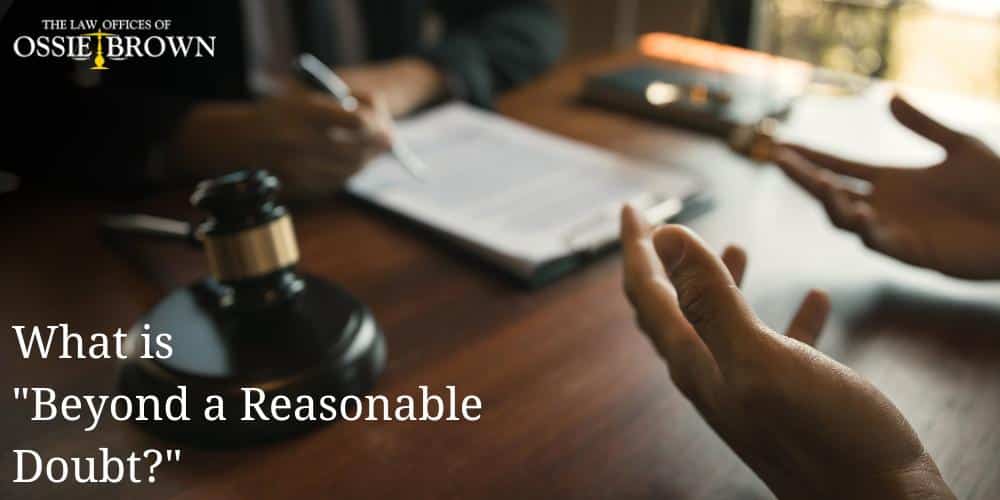
What is "Beyond a Reasonable Doubt?" Ossie Brown
Next Steps. 1. Think about whether the Crown can prove guilt 2. Think about if the Crown can prove a guilty mind 3. Understand proof beyond a reasonable doubt 4. Understand not criminally responsible. To be found guilty of a crime, there must be proof. beyond a reasonable doubt. that:

Law for Business. The Nature of Crimes презентация онлайн
Beyond a reasonable doubt does not mean without any doubt. The question that the Court must determine is, does reason and the supporting evidence suggest that guilt is more likely than not. Evidence That Proves Guilt Beyond a Reasonable Doubt. The evidence in a criminal trial needs to be considered as a whole. The evidence on a whole needs to.

Beyond a Reasonable Doubt (2009) Posters — The Movie Database (TMDB)
Beyond a reasonable doubt is the legal burden of proof required to affirm a conviction in a criminal case. In a criminal case, the prosecution bears the burden of proving that the defendant is guilty beyond all reasonable doubt. This means that the prosecution must convince the jury that there is no other reasonable explanation that can come.

What Does Guilty Beyond A Reasonable Doubt Mean? YouTube
Beyond a reasonable doubt is a popular phrase, but one that is not always widely understood by the general public. Yet proving beyond a reasonable doubt that somebody committed an offense is a pillar of the common law criminal justice system. This burden of proof helps reduce the risk of innocent people being deprived of their liberty and.
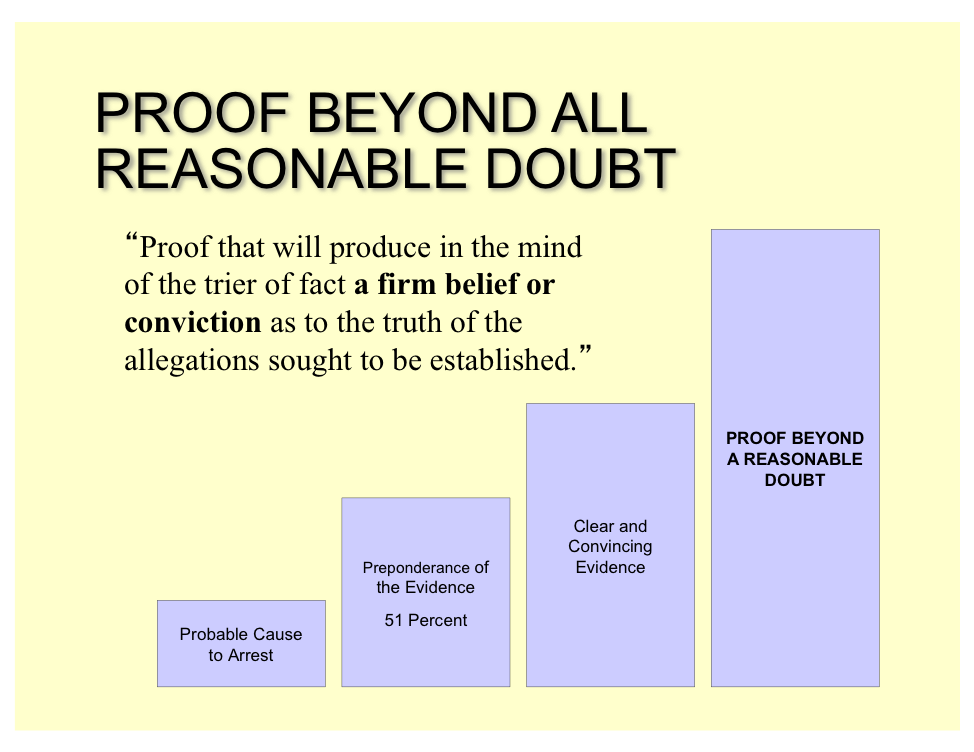
Proof Beyond a Reasonable Austin Criminal Defense Lawyer
Definition and Significance of Reasonable Doubt. The standard of proof in a Canadian criminal trial is proof beyond a reasonable doubt. This means that the judge or jury must be satisfied beyond a reasonable doubt that the defendant is guilty. The Crown has the burden of proof. This means that the Crown must prove that the defendant is guilty.
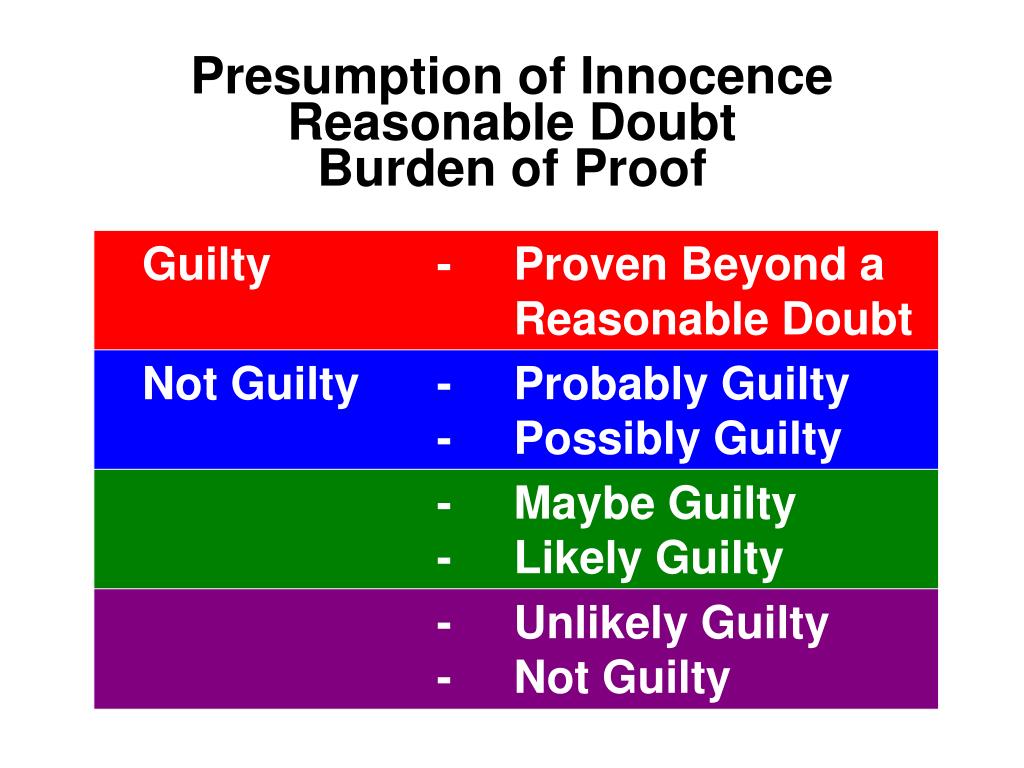
PPT Presumption of Innocence Reasonable Doubt Burden of Proof PowerPoint Presentation ID4035820
What is "beyond a reasonable doubt"? Proof beyond a reasonable doubt is a high bar to meet. This is because the Canadian Charter of Human Rights and Freedoms guarantees the presumption of innocence. The idea is that this higher standard safeguards the presumption of innocence by reducing the chance that an innocent person will convicted of.
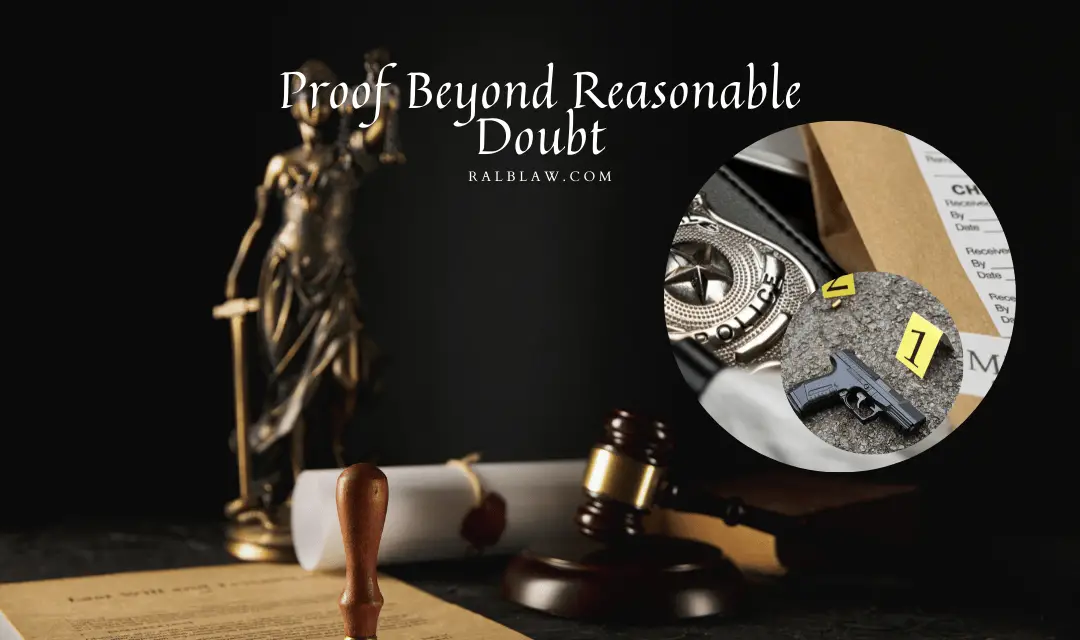
Proof Beyond Reasonable Doubt Only Moral Certainty RALB Law
Proof beyond a reasonable doubt requires evidence of such persuasive force that you are convinced of the defendant's guilt to a very high degree of certainty. One way to think about that degree of certainty is that if certainty ranged from 0 to 100, proof beyond a reasonable doubt would be reached when your degree of certainty was at least 95.
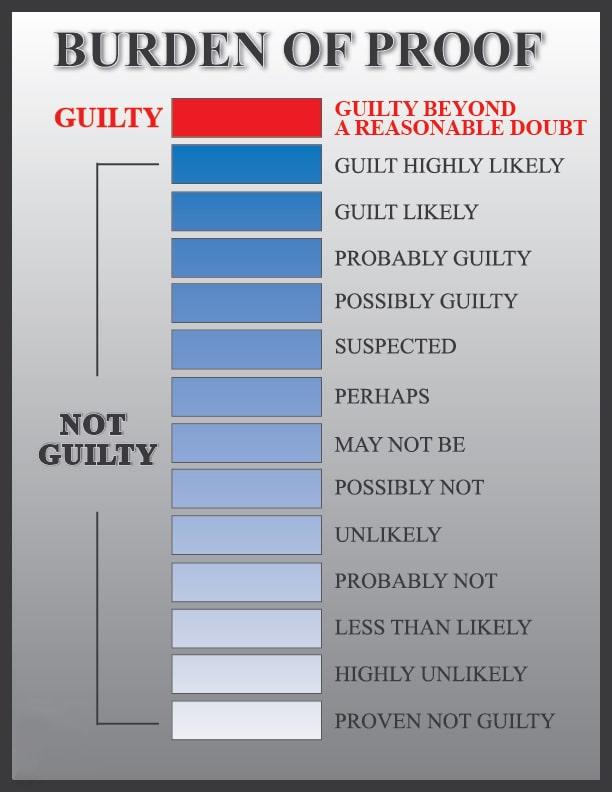
The Definition of “Beyond a Reasonable Doubt” Federal Criminal Law Center
Proof beyond a reasonable doubt is the highest standard of proof possible. Because a person's liberty is at stake, this high standard is required by the American judicial system. Other standards of proof apply to different types of cases. For example, some proceedings may only require "clear and convincing" evidence.

Proof Beyond a Reasonable Doubt YouTube
The standard of "beyond a reasonable doubt" (BARD) is a common law standard of proof in criminal matters. [1] This standard is exclusively used in criminal or quasi-criminal proceedings. This includes not only adult criminal trials, but also young offender cases, adult sentencing, and certain provincial penal offences.

Beyond Reasonable Doubt by Robert
The question the reviewing court is to ask itself is not whether it believes the evidence at the trial established guilt beyond a reasonable doubt, but whether, after viewing the evidence in the light most favorable to the prosecution, any rational trier of fact could have found the essential elements of the crime beyond a reasonable doubt.8.

PPT Reservoir Induced Seismicity PowerPoint Presentation ID388754
Beyond a reasonable doubt means that the evidence is such that the trier of fact can conclude with virtual certainty that the defendant committed the alleged offense. That does not necessarily mean that all doubt is erased, but no other reasonable explanation exists based on the proof provided. It is the highest burden of proof in a legal matter.
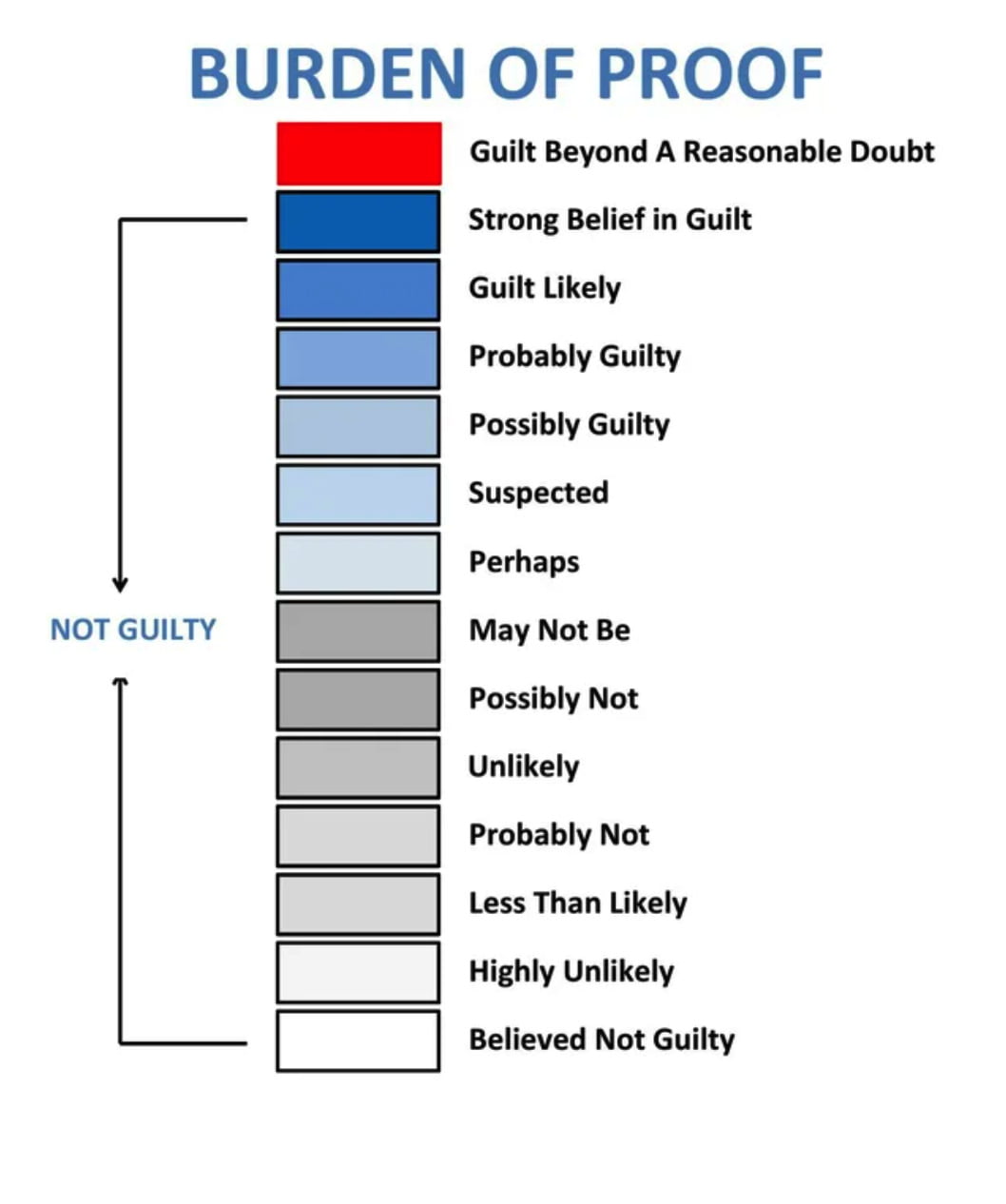
Please can somebody help me understand the balance of probabilities. r/policeuk
In the U.S. criminal legal system, a prosecutor bears the burden of proving that the defendant is guilty "beyond a reasonable doubt" of the crime for which he has been accused. This means that the proposition, scenario, or facts presented by the prosecution must be proven to the jury to the extent that there could be no "reasonable doubt" in the mind of a "reasonable person" that.
